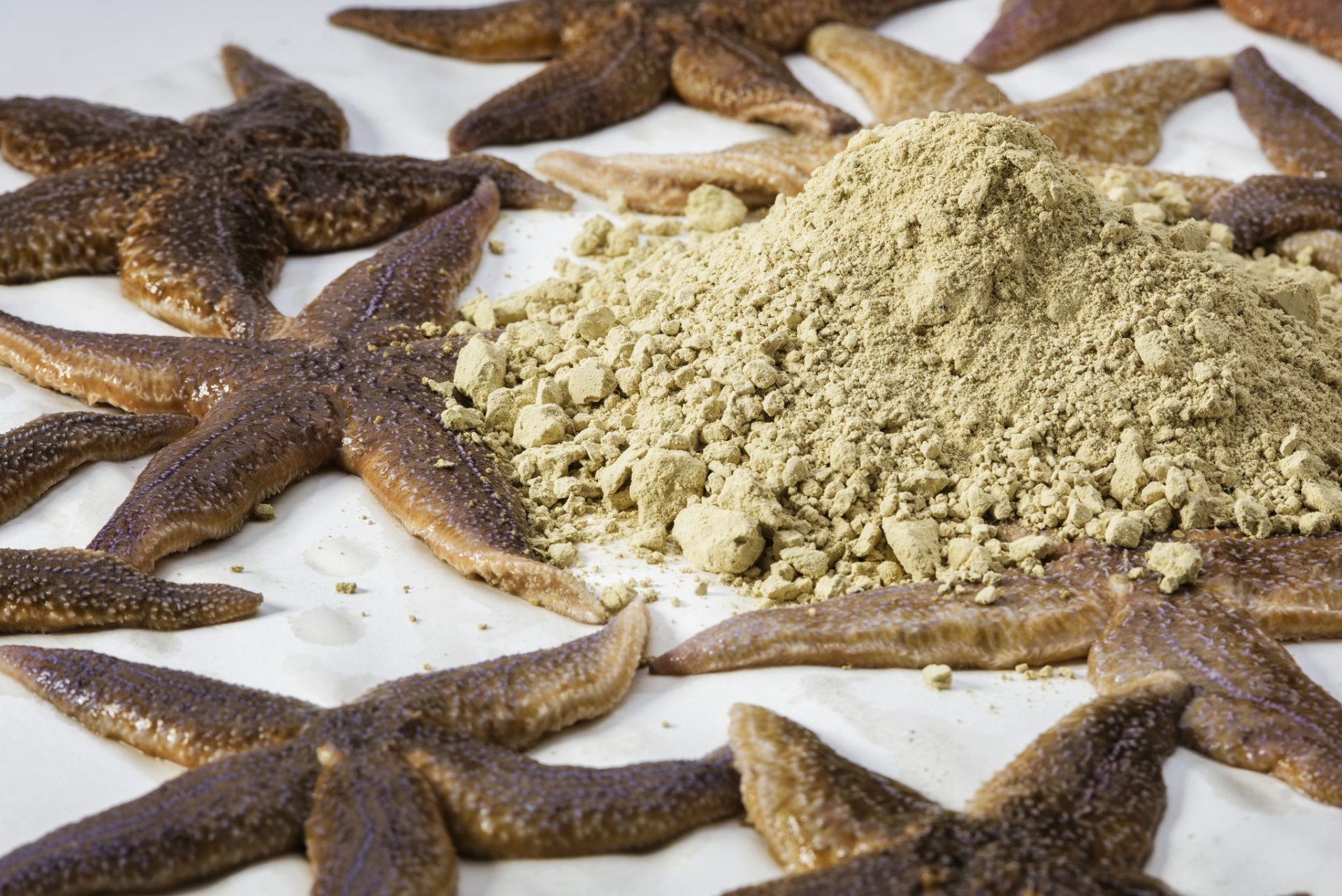Starfish plant solves multiple challenges in both fishery and organic agriculture
In search for alternative sources of protein for organic pig feed an innovative collaboration between local fishery and the worlds’ first starfish plant has led to a triple win solution.
Organic pig production is a successful part of Danish high-quality food for both local markets and exports. Part of the organic production DNA has always been an active search for better solutions to improve quality while lowering the environmental foot prints.
Collaborative innovation is key
An important step in this direction is to find feed alternatives that minimises the import of protein from abroad. Looking under water has proven fruitful in more than one case and the latest success builds on a collaboration between local fishermen who are challenged by starfish in the waters of Limfjord and a new plant that specialises in the extraction of proteins from seawater sources.
With the plant ready to buy the starfish, the fishermen can now see them as a source of income rather than an underwater competitor in the mussel fishery
The plant run by the company Danish Marine Protein is owned by Vestjyllands Andel (Cooperative of Limited Liability) and build as part of the multi sector collaboration GreenLab A/S buys the starfish from mussel catches in the fjord, dries them and grinds the solids to powder. This powder is then ready to add to the daily feed of organic pigs. The plant thus acts as the crucial link in a new supply chain that brings in solutions in both ends of the chain.
Turning a nuisance into a source of income
Starfish used to be a nuisance to the local mussel fishermen. The starfish have a large appetite for mussels and make a serious hindrance for upscaling the catch and sales of quality mussels from the fjord. Further, by preventing the optimal thriving of the mussels, an important source for cleansing and keeping the marine environment in perfect shape is lost.
With the plant ready to buy the starfish, the fishermen can now see them as a source of income rather than an underwater competitor in the mussel fishery – with the added benefit of improving the conditions of the marine environment.
At the other end of the chain, the organic pig farmers can cut down the soy imports and enjoy using a local protein source.


